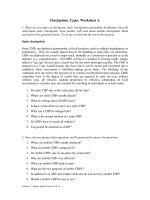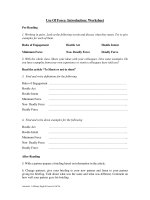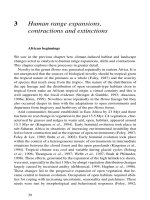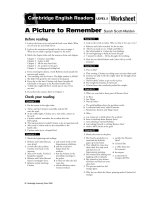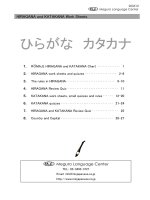Contractions worksheet
Bạn đang xem bản rút gọn của tài liệu. Xem và tải ngay bản đầy đủ của tài liệu tại đây (8.06 KB, 1 trang )
Contractions worksheet
Written English is becoming more and more informal thanks to the advent of email and instant messaging. As a
result of this forms like contractions which were only acceptable in spoken English have now started making an
appearance in print.
Here is a quick overview of the contractions in English. Each contraction is followed by its full form and example
sentences.
Positive Contractions
I’m — I am — Example: I’m a teacher.
I’ll — I will — Example: I’ll come tomorrow.
I’d — I had / I would — Example: I’d better leave now. (= I had better leave now.) I’d tell you if I knew. (= I would
tell you if I knew.)
I’ve — I have — Example: I’ve seen this film before.
You’re — You are — Example: You’re an amazing chap!
You’ll — You will — Example: You’ll regret this.
You’d — You had / would — Example: You’d better give me my money back. (= You had better give me my money
back.) OR You’d like some soup, wouldn’t you? (= You would like some soup, wouldn’t you?)
You’ve — You have — Example: You’ve been a great help.
He’s — He is / has — Example: He’s an old friend of mine. / He’s been teaching for twenty years.
He’ll — He will — Example: He’ll help us.
He’d — He had / would — Example: He’d better consult a doctor. (= He had better consult a doctor.) He’d always
bring us nice little presents. (= He would always bring us nice little presents.)
She’s — She is / has — Example: She’s working now. / She’s agreed to come.
She’ll — She will — Example: She’ll be joining us.
She’d — She had / would — Example: She’d been waiting for two hours when he arrived. / She’d like to have a
glass of water.
Stay on top of your writing! Download our grammar guide from www.englishgrammar.org to stay up-to-date.
Powered by TCPDF (www.tcpdf.org)
